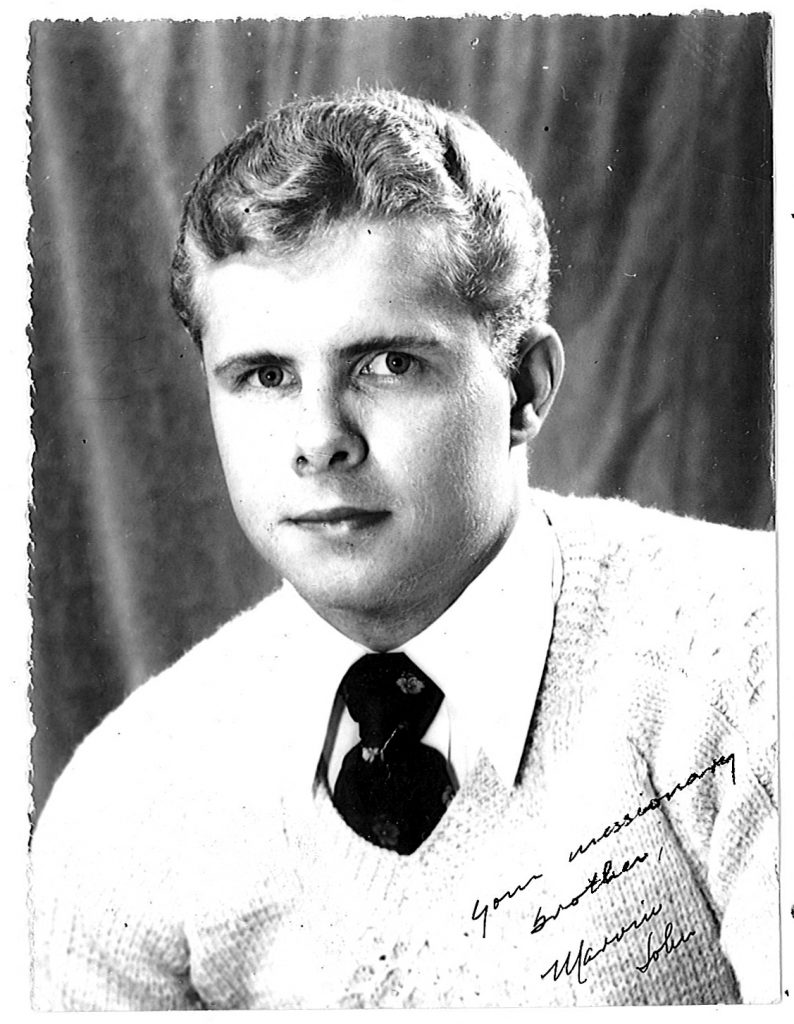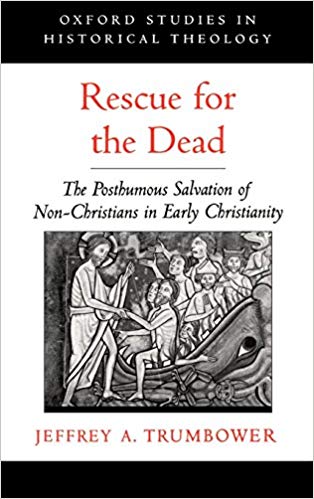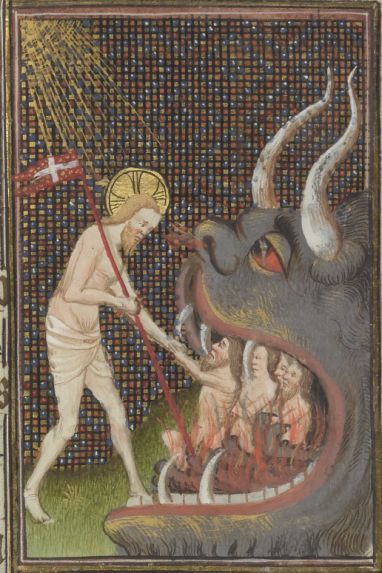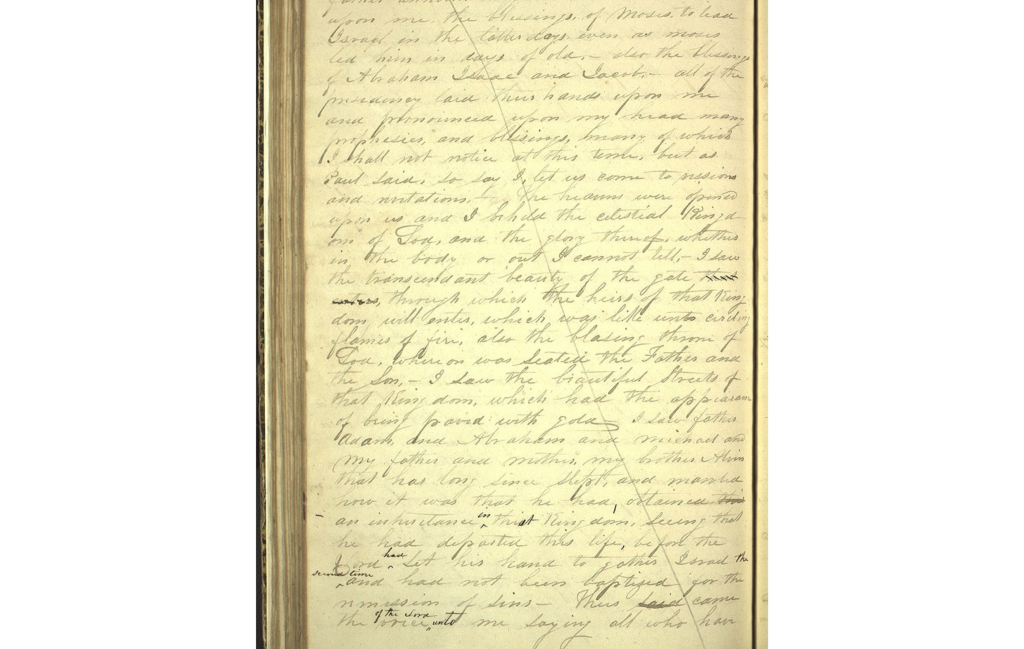My oldest brother was born on December 13, 1955. He would be 64 today. He was killed in 1993 in a terrible car accident. It was the worst day of my life.

Joseph Smith was born on December 23, 1805. So in the days leading up to Christmas my mind dwells on death and the role big brothers play in solving soteriological problems. Let me explain.
Soteriology (so·te·ri·ol·o·gy) is theology about salvation. Christianity’s soteriological problem is based on three premises:
- God loves all people and desires their salvation (1 Timothy 2:3-4)
- Salvation comes to those who knowingly and willfully accept Jesus Christ as their Savior (John 3:16)
- Most people live and die without accepting Christ, or even knowing that they could or should
The problem says that all three premises are true but they can’t be reconciled
Proposed solutions tend to discredit one of the premises. Maybe God doesn’t desire the salvation of all people. Or maybe Jesus saves people who don’t knowingly and willfully accept Him.
The first Christians didn’t have this problem
Because they didn’t make the unstated assumption that makes it a problem in the first place. In other words, the first Christians didn’t believe that death was a deadline that determined a person’s salvation. Peter taught that Jesus Christ preached His gospel to the dead so they could be judged as justly as the living (1 Peter 3:18-20, 4:6). Paul taught that Christians could be baptized for the dead (1 Corinthians 15:29).

It was Augustine, not Jesus or His apostles, who decided
That death should be a deadline that determined a person’s salvation. But Augustine’s view prevailed in Christ’s church, at least in the West. Many medieval Christians continued to believe that after his death and before his resurrection, Christ opened the spirit prison. They called this event the harrowing of Hell, and they created a lot of art depicting it.

However, the Protestant reformers, for all the good they did, generally followed Augustine on this point.
Then along came Joseph Smith
He was immersed in Protestant culture and assumptions. His big brother died painfully in 1823. The loss was heartbreaking to Joseph. It stung even worse when Reverend Benjamin Stockton implied pretty strongly at Alvin’s funeral that he would spend eternity in Hell. Joseph couldn’t reconcile Alvin’s goodness, Rev. Stockton’s doctrine, and a just and merciful God.
Fast forward twelve years to 1836
Joseph now knows from the Book of Mormon that unaccountable infants who die are not damned, but as distasteful as Rev. Stockton’s doctrine still sounds, Joseph doesn’t know that adults who die before embracing the Savior’s gospel are not automatically damned. Sincere and devout but mistaken theologians have caused this problem. If you’re the Lord Jesus Christ, how will you solve it?
How will you inform a world that has already decided otherwise
That your saving grace reaches beyond death and saves all who choose to embrace your gospel? Joseph hasn’t even thought to ask, being so thoroughly acculturated by Protestantism and all. So how do you get him to become open to it? How do you help him become aware of things he doesn’t know that he doesn’t know?
You show him a vision of the future, and of heaven, and you make sure he sees Alvin there. That makes him marvel and wonder. How will Alvin get past the flaming gates of God’s kingdom? Having purposely provoked the question, you answer it:
All who have died without a knowledge of this gospel, who would have received it, if they had been permitted to tarry, shall be heirs of the celestial kingdom of God— also all that shall die henceforth, without a knowledge of it, who would have received it, with all their hearts, shall be heirs of that kingdom, for I the Lord will judge all men according to their works according to the desires of their hearts (D&C 137).

Desire, not death, is the determinant of salvation through Jesus Christ
He saves all who desire to be saved by Him once they know that good news. Which side of death they are on makes no difference at all. By removing the assumption that death determines salvation, Jesus resolved the soteriological problem for Joseph and for everyone else. There is no conflict between the premises now.
That’s just the beginning. After restoring this truth, Joseph restored the early Christian practice of baptism for the dead. The prophets after him restored endowment and sealing ordinances for the dead. And in 1918 his nephew, Joseph F. Smith, received a series of visions that reveal how Jesus harrowed Hell. His report of that experience testifies: “The dead who repent will be redeemed, through obedience to the ordinances of the house of God” (D&C 138:58).
That is a good verse, no doubt. But my favorite is the one right before it, the one in which Joseph F. Smith says that he saw that “the faithful elders of this dispensation, when they depart from mortal life, continue their labors in the preaching of the gospel of repentance and redemption, through the sacrifice of the Only Begotten Son of God, among those who are in darkness and under the bondage of sin in the great world of the spirits of the dead” (D&C 138:57).
That verse is about all three of my big brothers–
Marvin J. Harper, Howard K. Harper, and the Only Begotten Son of God–and about how they’re solving the soteriological problem. “O the greatness of the mercy of our God, the Holy One of Israel! For he delivereth his saints from that awful monster the devil, and death, and hell, and that lake of fire and brimstone, which is endless torment” (2 Nephi 9:19)

Been a fan of yours for many years going back to Joseph Papers program on T V.
Great article Steven. Interesting to hear what Reverend Stockton said about Alvin’s salvation at his funeral.
Appreciated your thoughts about your brother and how difficult it was for you to deal with his loss. One thing I wanted to mention was that your brother Marvin’s handwriting was amazing! Dont know what kind of person he was, but he must have been a perfectionist with how he wrote and signed his name!
You mentioned Joseph Smith’s birthday is coming up. Not only is his birthday coming up, but if our calendar’s are correct, this coming Monday will be exactly 214 years from his birth as he was born on a Monday! How ironic as we celebrate the year 2020 and commemorate the greatest theophany of all the ages. Praise To The Man.
Enjoyed your article, Eddie